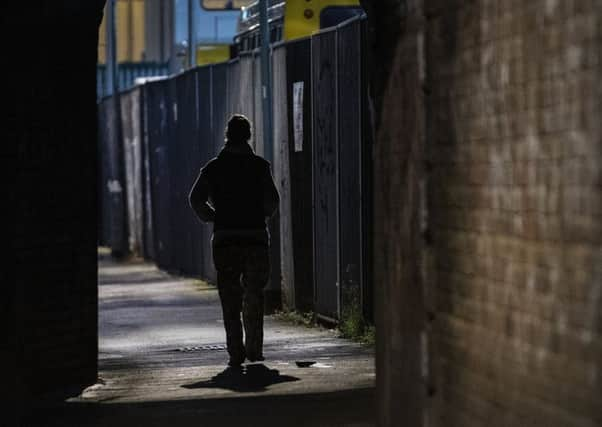The best way to cut sex trafficking in Scotland is to make buying sex illegal - Kat Banyard


While this particular criminal gang failed in its attempt to evade justice, with four members of the group finally jailed last month, Scotland is losing the fight to prevent sex trafficking and sexual exploitation. The reason? A continued failure to combat the very thing that drives these brutal profit-seeking exploits: demand from sex buyers.
It is money handed over by sex buyers that lines the pockets of pimps and traffickers. Without their demand, there would be no “supply” of women into the sex trade. Yet paying for sex is currently legal. Men who pay to sexually exploit women do so with legal impunity; their actions fuelled by sexist attitudes and a sense of sexual entitlement.
Advertisement
Hide AdAdvertisement
Hide AdThese attitudes were on chilling display in the following online “review” by a sex buyer in Scotland: “Not really a good punt... she spent too much time speakin in broken english, dropping hints about previous customers forcing girls (or her) into doing things they/she did not want too do.. obviously her way of making me realise shes not gonna give much effort... true. […] i felt like putting my hand over her mouth to shut her up.”
The Scottish Government rightly says that prostitution is violence against women, insisting their objective is “Men who carry out violence against women and girls are identified early and held to account by the justice system”. So why are sex buyers not being held to account?
Where the Scottish Government currently offers words, twenty years ago Sweden took action. To deter demand and hold perpetrators accountable, the government criminalised paying for sex. It also decriminalised “selling” sex, offering victims of sexual exploitation support services rather than legal penalties.
The results put paid to any notion that this form of violence against women is somehow inevitable, uniquely immune to prevention efforts. Surveys in 1996 and 2008 found the proportion of men in Sweden who report paying for sex fell from 13 per cent to 8 per cent. The most recent research revealed 7.5 per cent of men had paid for sex; just 0.8 per cent in the previous 12 months – the smallest proportion recorded in two decades and the lowest level in Europe.
Attitudes have also changed. Before Sweden introduced its ‘Sex Purchase Act’, just 20 per cent of men and 45 per cent of women backed criminalising paying for sex. Figures reported in 2015 showed support for the law had soared to 60 per cent among men and 85 per cent among women.
On the law’s impact on sex trafficking, Detective Superintendent Kajsa Wahlberg, Sweden’s national rapporteur on human trafficking, says, “it has definitely made Sweden a bad market for traffickers to conduct activities, and traffickers and pimps look upon Sweden as a bad market for these activities.”
Sweden’s experience is consistent with international analysis of trafficking rates, which shows sex trafficking flows are highest into countries where the prostitution trade is legalised.
Fundamentally, Sweden’s Sex Purchase Act recognises that the responsibility of the state is to take action to end violence against women. Not to tolerate it, not to regulate it; to end it. And ending the abuse of women through prostitution and sex trafficking requires ending the demand. It’s why France, Norway, Ireland, Northern Ireland and Iceland have all followed Sweden’s lead in criminalising paying for sex and decriminalising victims. Scotland must be next.
Advertisement
Hide AdAdvertisement
Hide AdFor Diane Martin CBE, a Scottish survivor of prostitution and sex trafficking, the recognition by the Scottish Government that prostitution is violence against women is right, but not enough. “Now is the time”, Martin says, “to apply that understanding in a legislative and operational way.”
Community safety minister Ash Denham MSP recently announced that the government will consult on approaches to challenging demand for prostitution. This is to be welcomed. But the government must ensure that the outcome is deeds, not words.
Kat Banyard is author of Pimp State: Sex, Money And The Future Of Equality